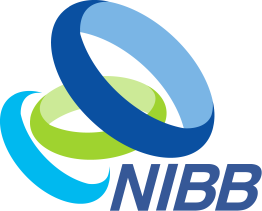This lecture will not be offered in 2025.
The following is the information on the lecture offered in 2024.
Evolution and Environmental Biology 2
1st Half
1 Credit
47 Basic Biology Program
Niimi, Shigenobu, Kawaguchi, Naruse, Soyano, Uchiyama, T. Nakamura, S. Morita
Four-grade evaluation
Level : Level 3
Competence : Academic expertise
■Outline
The course will introduce topics on modern evolutionary biology including the fundamentals of the methods for comparative genomics analyses. The first topic is the methodogy for evolutionary analysis, which will cover genome sequencing, orthology analysis, genome comparison and detection of selection signature. Subsequently, we will explore the evolutionary mechanism that brings about the diversity of organisms. For instance, turnovers of sex determination genes have frequently happened during the evolution of vertebrates. Genetic and genomic basis of this phenomenon will be discussed using fish as models. Arbuscular mycorrhiza and root nodule symbioses are mutually successful and beneficial interactions on earth. The evolution of plant-microbe symbioses by recruiting or neo-functionalizing common factors will be discussed. The evolutionary novelties acquired by insects through evolution will be discussed.
■Learning objectives
1.Learn the principles of genome sequencing and acquire a fundamental understanding of the bioinformatics techniques utilized in genome analysis and molecular evolution study.
2.Understand the basic concepts, methods, and applications of comparative genomics.
3.Understand the diversity and evolution of sex-determination systems in fish. 4.Understand the evolution of symbiotic mechanisms between legumes and nitrogen-fixing bacteria.
5.Understand the molecular mechanisms and evolution of arbuscular mycorrhizal symbiosis.
6.Understand the diversity and evolution of insects.
■Grading policy
Grades are determined based on class attendance and the quality of papers submitted to the lecturer by the deadline. The subject of the paper must be one of the six course objectives.
■Lecture Plan
Session 1 Friday, May 24, 2024 (Shigenobu, S.) (45 minutes x 2 sessions)
14:40-15:25 Genome sequencing and the methods for evolutionary genomics I
15:30-16:15 Genome sequencing and the methods for evolutionary genomics II
Session 2 Friday, May 31, 2024 (Uchiyama, I.) (45 minutes x 2 sessions)
13:00-13:45 Bioinformatics for comparative genomics I
13:50-14:35 Bioinformatics for comparative genomics II
Session 3
Friday, June 7, 2024
(Nakamura, T., Morita, S., Niimi, T.) (45 minutes x 3 sessions)
13:00-13:45 Evolution of insects I(Nakamura, T.)
13:50-14:35 Evolution of insects II(Morita, S.)
14:40-15:25 Evolution of insects III(Niimi, T.)
Session 4 Friday, June 21, 2024 (Soyano, T.) (45 minutes x 2 sessions)
13:00-13:45 Evolution of root nodule symbiosis I
13:50-14:35 Evolution of root nodule symbiosis II
Session 5 Friday, June 28, 2024 (Kawaguchi, M.) (45 minutes x 3 sessions)
13:00-13:45 Evolution of arbuscular mycorrhizal symbiosis I
13:50-14:35 Evolution of arbuscular mycorrhizal symbiosis II
14:40-15:25 Evolution of arbuscular mycorrhizal symbiosis III
Session 6 Friday, July 12, 2024 (Naruse, K.) (45 minutes x 3 sessions)
13:00-13:45 Diversity and evolution of sex-determination systems in fishes I
13:50-14:35 Diversity and evolution of sex-determination systems in fishes II
14:40-15:25 Diversity and evolution of sex-determination systems in fishes III
■Location
Online lecture using Zoom
■Language
English (Japanese may be used only when all students are native Japanese speakers).
■Textbooks and references
■Notes for students of other programs
Students other than Basic Biology Program who wish to enroll in this class should contact Graduate Student Affairs Section, Okazaki Administration Center (r7139@orion.ac.jp) during the registration period.
■Keyword
evolution, genome, next-generation sequencing, comparative genomics, ortholog, XX- XY sex determination, ZZ-ZW sex determination, Dmy, sex reversal, positional cloning, legume, root nodule symbiosis, symbiosis, plant, microbe, insect, evolutionary novelty
■Contact for Course Inquiries
Teruyuki NIIMI niimi@nibb.ac.jp




